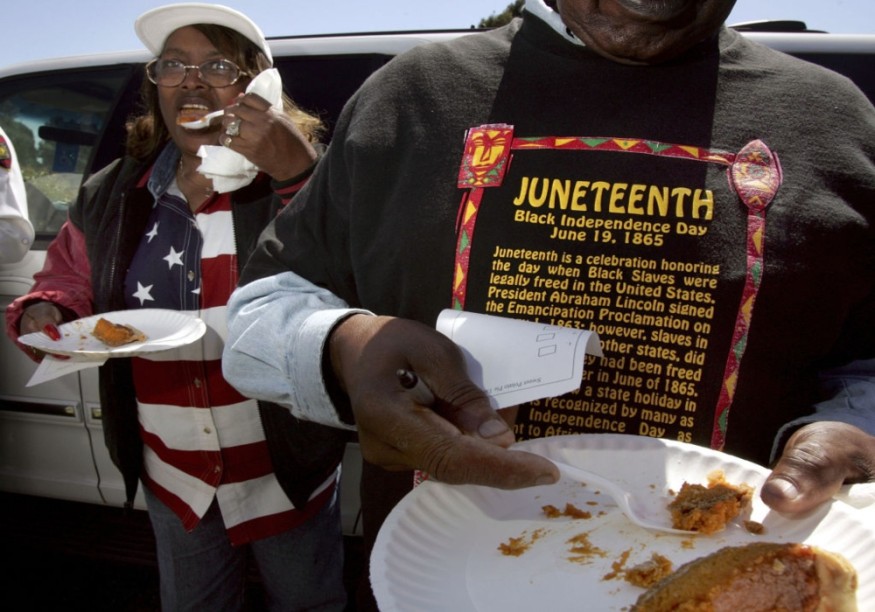Juneteenth: What Is It and Why Is It Celebrated

Juneteenth, the commemoration of the emancipation of the last enslaved people in the United States, is approaching and will be observed by Americans in a few weeks.
Black Americans have long celebrated this milestone in American history through various festivities, including parades, street festivals, music, and barbecues.
However, it was not until 2021 that Juneteenth was officially recognized as a national holiday when President Joe Biden signed it into law. This recognition marks a significant step in acknowledging the importance of Juneteenth and its historical significance.
While more people are becoming aware of Juneteenth and its meaning, the holiday's customs face challenges. Political rhetoric criticizes efforts to educate Americans about the nation's racial history.
Additionally, some businesses are accused of exploiting the celebration for marketing purposes, while some individuals participate in the festivities without understanding the historical context behind the holiday.
What Is Juneteenth?
Juneteenth, a combination of "June" and "nineteenth," is a significant date marking the emancipation of the last enslaved people in the United States, Sentinel-Tribune noted.
It is initially known as Emancipation Day, the second Independence Day, and Freedom Day. The celebrations began with church gatherings and lectures, before expanding as Black Texans and left the state to commemorate the occasion.
Like other national holidays like Flag Day, Juneteenth has gained official recognition as a legal holiday in many states nationwide. Employees in Texas, New York, Virginia, Washington, and numerous businesses now enjoy a day off in honor of Juneteenth.
Opal Lee, a former educator, and activist, played a crucial role in advocating for the national recognition of Juneteenth.
With fond memories of childhood celebrations filled with music, food, and games in East Texas, Lee embarked on a remarkable journey from Fort Worth to Washington, D.C., in 2016. Her cause garnered support from politicians and celebrities alike.
Lee had the privilege of standing beside President Joe Biden as he signed the bill officially designating Juneteenth as a national holiday.
Juneteenth Celebration
Juneteenth commemorates the emancipation of enslaved people in the United States and has its roots in Galveston, Texas.
Despite President Abraham Lincoln's Emancipation Proclamation in 1863, the news of freedom reached many parts of the South, in the Civil War, ended in 1865.
General Order No. 3, delivered by Union Maj. Gen. Gordon Granger on June 19, 1865, finally informed the people of Texas that slavery was abolished and proclaimed an "absolute equality of personal rights and rights of property" between former masters and enslaved people.
The observance of Juneteenth began in Galveston, with celebrations including concerts, parades, and readings of the Emancipation Proclamation. Over time, the commemoration has spread worldwide, per WWMT.
The movement for racial justice sparked by the murder of George Floyd in 2020 contributed to Juneteenth gaining federal recognition as a holiday, the first since the establishment of Martin Luther King Jr. Day in 1983.
Juneteenth is now being embraced as more than just a day of commemoration. A movement has emerged seeking to utilize the holiday as a platform for activism and education. Community service projects have been initiated, explicitly focusing on tackling racial disparities.
These initiatives aim to address pressing issues such as healthcare inequities and the necessity of parks and green spaces in marginalized communities.
While Juneteenth has become a commercial opportunity for retailers and venues, some marketing attempts have faced backlash on social media.
READ MORE : Memorial Day's History
This article is owned by Latin Post.
Written by: Bert Hoover
WATCH: Juneteenth's history and meaning explained - From USA TODAY
Subscribe to Latin Post!
Sign up for our free newsletter for the Latest coverage!

















